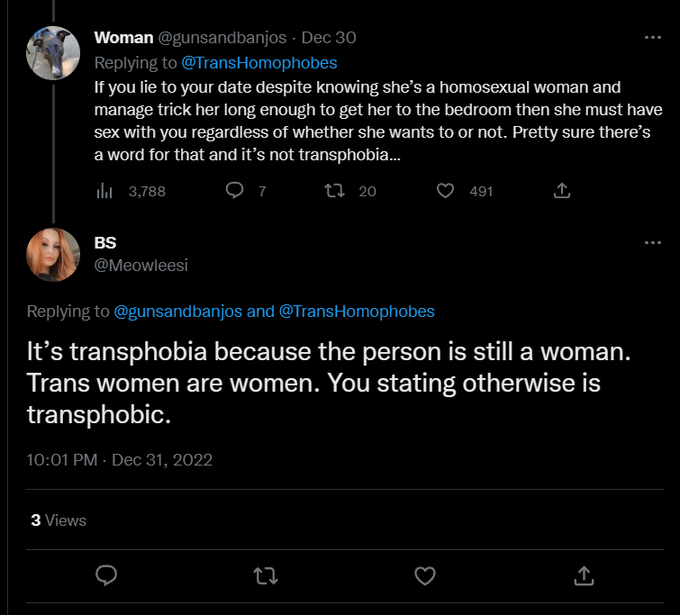you said the new term was more correct, and you strongly implied we switched because we know something now about science that we didn't know then
In science, terms are meant to refer to concepts. The words themselves have no magical power, beyond acting as a the referent for a class of facts. Facts which, in this case, have been known for a very long time.
And my point was exactly the opposite, that these facts are hardly new. We gradually adopted the terminology of "transgendered" rather than "transexual" once it started appearing in popular society, as it clearly had utility in terms of what we knew about the biology versus sociology of sex, as we then called it, or between sex and gender, as we would now call it. Does that make more sense?
An analogy might be the term "personality", which came to gradually replace "temperament" throughout much the same time period iof the 1970s in psychology. Nothing changed in terms of our ability to describe or understand individual pscyhological dispositions, we just came to feel that personality was a better term to use in an era where behavioralist explanations of motivation were starting to lose popularity; like "sex", the meaning of "temperament" therefore narrowed considerably to refer only to deterministic factors as opposed to social ones.
We've known about intersex people for centuries at least
After a fashion, but I meant in termsa of having a substantive scientific description of sex and inheritance, ie the discovery and description of the 23rd chromosome pair.
rather than leading them, that's a red-flag that the disciplines are apt to be long on the social and short on the science
I don't think that's true. Science and society are always in conversation withone anotther to some degree. We shouldn't take
concepts or
beliefs from society without submitting to empirical rigor, but terminology is just words; we wouldn't adopt new terminology if it didn't have clear utility. Nothing changed about the scientific description of inheritance or sex because we borrowed this phrasing, it was just a more elegant way of describing the gap between sex and gender, so we adopted it.
and you pulled that whole patronizing "I guess if you're not familiar with the sciences" rhetorical ploy at me for saying it. Why do you behave this way?
Low tolerance for science denialism.


 It was your claims about the terms that I challenged! You said the language changed to transgendered from "transexual" because trans-identified people do not and cannot change sex, you said the new term was more correct, and you strongly implied we switched because we know something now about science that we didn't know then -- from context, apparently, that people cannot change sex. None of those claims about the terms have scientific support. That's why I challenged them. I challenged no conclusions the sciences came to more than a century ago. You made that up.
It was your claims about the terms that I challenged! You said the language changed to transgendered from "transexual" because trans-identified people do not and cannot change sex, you said the new term was more correct, and you strongly implied we switched because we know something now about science that we didn't know then -- from context, apparently, that people cannot change sex. None of those claims about the terms have scientific support. That's why I challenged them. I challenged no conclusions the sciences came to more than a century ago. You made that up.
